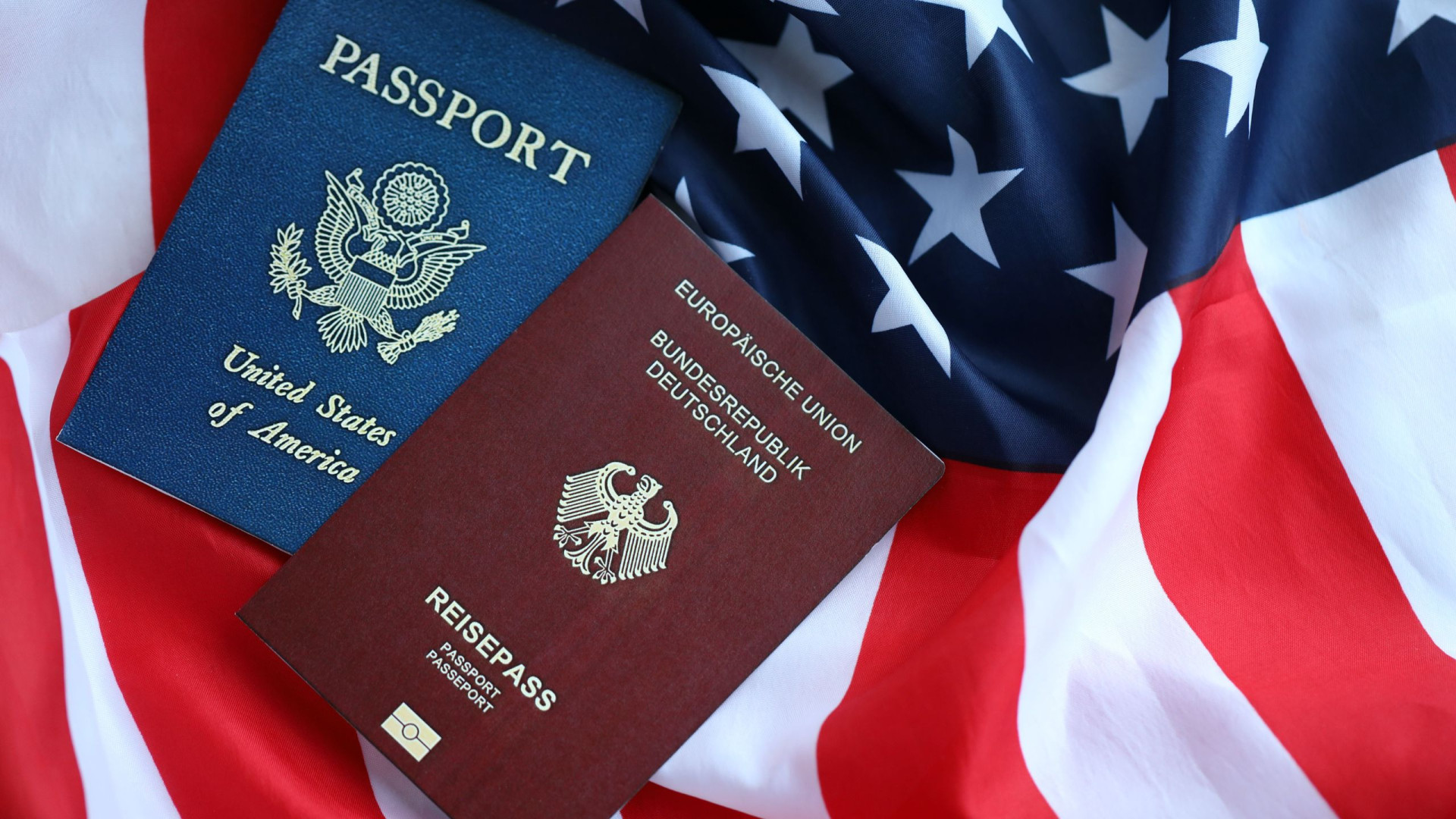Updated on 27.06.2024
From June 27, 2024, German citizens will be able to acquire additional US citizenship without any bureaucratic hurdles. This is due to a new naturalization law.
Share article:

With the entry into force of the Act on the Modernization of Citizenship Law (StARModG) on June 27, 2024, the conditions for obtaining dual citizenship in Germany have changed significantly and multiple citizenship has been enshrined in law.
Previously, the acquisition of foreign citizenship under German law automatically led to the loss of German citizenship. Since 2000, however, it has been possible to apply for a retention permit in order to prevent the automatic loss of German citizenship upon acquiring US or other citizenship.
The new Citizenship Act legalizes multiple citizenship and thus dual citizenship, meaning that a retention permit is no longer required in Germany when acquiring another citizenship. As a result, people who acquire another nationality no longer automatically lose their German citizenship.
By abolishing the retention permit, German nationals can now apply for naturalization in their country of residence, e.g. the USA, without risk and take on a second nationality. This change in the law is therefore a great relief for green card holders and applicants for a US immigrant visa who wish to apply for a US passport.
Anyone who has acquired US citizenship by birth in the United States and German citizenship by descent from a German parent has both nationalities without the need to apply for naturalization.
Under the old law, foreign nationals had to give up their original citizenship in order to obtain a German passport.
The new law allows foreign nationals to retain their previous citizenship and hold multiple citizenships when naturalizing in Germany.
The country of origin must also allow dual citizenship by law. In some countries, including Austria, China and India, you automatically lose your citizenship as soon as you take on another one.
The aim of modernizing the citizenship law is to offer highly qualified workers from abroad and people who have been living in Germany for many years but do not have German citizenship the prospect of staying permanently.
Due to global mobility and the interdependence of personal and professional circumstances, dual citizenship is not only practical, but increasingly necessary.
With the new law, there is no longer an option obligation, i.e. people no longer have to choose between citizenships. At the same time, it will be quicker and less bureaucratic to obtain German citizenship in addition to an existing one due to simplified criteria, among other things.
It is to be expected that the introduction of the new Naturalization Act will result in numerous applications for naturalization in Germany, which is likely to lead to longer waiting times.
People with dual citizenship enjoy numerous advantages in terms of living and staying permanently in both countries.
One advantage of dual citizenship is the opportunity to live and work in both countries. In addition to the right to vote and political participation in both countries, the elimination of visa applications will make it easier to enter and leave these countries. Finally, people with dual citizenship benefit from both flexibility and security in areas such as
For immigrants with a US passport, i.e. US citizenship, the residence requirements in both countries no longer apply. Holders of a US immigrant visa (permanent residence card) must, for example, have their permanent residence in the USA and provide proof of physical presence in the United States (= Continuous Residence and Physical Presence Requirement).
In addition, dual nationals from Germany and the USA can apply for naturalization in the US for their family members more easily and quickly with the U.S. Citizenship and Immigration Services (USCIS) than Green Card holders.
Until June 26, 2024 (before the new Citizenship Act was passed and signed), German citizens who wanted to naturalize for example in the USA without losing their German citizenship, had to apply in advance for a retention permit for a fee and receive this officially in the first instance. The application required proof of existing ties to Germany and a justification for acquiring another citizenship.
Individuals seeking dual citizenship faced long processing times and risked losing their German citizenship if naturalization was not completed within the two-year validity period of the retention permit. In such cases, it was necessary to apply for a new retention permit (subject to a fee) in due time.
Date:
Wir und unsere Partner nutzen Cookies, um personenbezogene Daten wie z.B. Browsing-Daten zu speichern und abzurufen, um z.B. Inhalte und Werbung bereitzustellen und zu personalisieren sowie die Verwendung der Website zu analysieren und das Benutzererlebnis zu verbessern. Sie erfahren mehr über die Zwecke, für welche wir und unsere Partner Cookies einsetzen, wenn Sie unten auf den Button „Cookie Einstellungen“ klicken. Hier können sämtliche Einstellungen auch geändert werden. Nachträglich kann man jederzeit seine Cookie-Auswahl überdenken oder seine Einwilligung widerrufen, indem man auf den Link zu den Cookie-Einstellungen im Footer unserer Webseite klickt. Beachten Sie bitte, dass das Blockieren einiger Cookie-Typen unsere Möglichkeiten zur Bereitstellung von auf Ihre Interessen zugeschnittenen Inhalten haben kann oder einige Funktionen der Webseite nur eingeschränkt zur Verfügung stehen.
Durch klicken auf “Alle Cookies akzeptieren” stimmen Sie unserer Nutzung und der Weitergabe Ihrer Daten an unsere Partner zu.